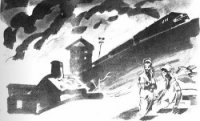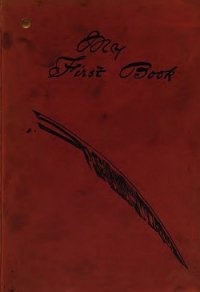Operation Nemesis: The Assassination Plot that Avenged the Armenian Genocide - Bogosian Eric (читать книги полностью без сокращений txt) 📗
Back in the town, in the Armenians’ municipal park, “200 to 300 children between the ages of two and four had been gathered; they had been given neither food nor water, and some were already dead.” Another witness reported that “six-month-old and seven-month-old babies… were being collected in sacks in the villages of the plain and thrown into the Euphrates.” Anyone who attempted to run or hide was hunted down and killed. Thousands of Armenian army conscripts from the region who had been working in labor battalions were summarily slaughtered, their bodies thrown into mass graves. The few women who survived the killings were “taken into the households of the gendarmes and the dignitaries with the heaviest responsibility for the massacres, now having finally been given permission to ‘marry’ Armenian women.”
The full truth of what had happened in Erzincan was not known to Tehlirian upon his return to his hometown. Still, it was impossible not to see and understand that something tragic had happened there. He could not escape his surging emotions. Feeling another attack coming on of what would later be termed epilepsy, Soghomon left his brother and the others and wandered upstairs, found a bed, and lay down. He was overwhelmed by a sense of impotence compounded with disgust. Why couldn’t he focus on the problem? “People who have the goal of survival and determination are not like me,” he thought. As he lay there, a vision of Talat Pasha appeared before his eyes. The minister of the interior raised his hand and Tehlirian imagined cutting it off. In his autobiography (written more than thirty years after the assassination), he describes this as a moment of revelation. “Is it possible to believe that one day, whenever it may be, a just judgement could occur?”18
As he fell into a tortured sleep, vivid dreams danced in Tehlirian’s head. They began as his waking day had begun, with his arrival in Erzincan after a long journey. As he made his way down the road, he was surprised to see a head rolling on the ground toward him, coming to rest at his feet. It was his mother’s head and it was speaking to him: “Go there! So that they don’t see you, my child!” The head rolled off, and when he followed it into the garden, Tehlirian found his lost family waiting for him. “My brother Avedis with open eyes is looking up at the sky. My mother’s head has gone to sleep next to her body. I see my sisters. Suddenly, my brother looks at me and asks, ‘Who are you and what do you want from us?’ ” Tehlirian screamed, “Don’t you remember me?” Avedis answered, “No!” “Suddenly the moon comes out from behind the clouds… and I now see that my brother’s skull has been smashed. ‘I am Soghomon, Avedis,’ I say. Bending down, I want to embrace the head but suddenly his face darkens and a cold smile appears on his lips. ‘Yes you resemble him. Where were you when we fled here? Why are you not lying here with us and why have you come back to caress me like a thief in the night? Go, go, I do not know you.’ ” Tehlirian broke from his fever dream to find his brother Misak standing over him.19
In the fall of 1916, the Armenians attempted to resettle their devastated towns. As the Russians consolidated their advance, they began to rethink their attitude toward their Armenian comrades. The official Russian position no longer promised an autonomous Armenian territory—no longer promised any territory at all. The tsar was offering only religious and educational aid to the beleaguered Armenians. Tehlirian reports: “[Russian overlords] filled the region with Armenian-hating officials. Turkish spies, who remained in the guise of civil officials in Erzinga after the retreat of the Turks, swarmed about everywhere.”20
As a “nation” physically caught between two empires, Russian and Ottoman, the Armenians were at the mercy of geopolitics. The Armenian vilayets of the Ottoman Empire (as well as the Caucasian-Russian provinces) were a buffer zone dotted with hundreds of villages, a vast unprotected area that was now a contested battleground. In the end, the tsar and the Ottomans saw the Armenians as little more than pawns in a much larger game. Besides, the tsar had an imminent and serious problem on his hands. The Ottomans had closed off shipping through the Bosphorus, past Constantinople. Russia was boxed in, no longer able to move grain from its warm-water ports. A swooning economy and massive loss of life on the eastern front had weakened the tsar’s hold on power.
In the early months of 1917, the Bolshevik Revolution gathered momentum in Russia. Civil war broke out. By March and April, the Russian army itself had split into two camps mirroring the Red (Bolshevik) and White (tsarist) sides of the conflict. Soldiers deserted the front and headed home to join the domestic fighting. The tsar abdicated in March, clearing a path for the communist takeover. The Bolsheviks couldn’t afford the distraction of an external war as they struggled to secure their hold on power. They decided to abandon the conflict. Armistice was declared between revolutionary Russia and the Ottoman Empire on November 7, 1917, removing Russia as a threat on the Caucasian flank of the empire. Upon the signing of the treaty, Russian troops abandoned eastern Anatolia altogether, including the Armenian provinces of Erzurum, Bitlis, and Van. By the end of the year, the Bolsheviks had pulled every soldier out of the Ottoman occupation. The Armenians were left on their own to continue what would be a futile struggle to hold the territory.
While the Russians were preoccupied by the civil war between the “Reds” and the “Whites” that followed the revolution, the Caucasian nations of Georgia, Azerbaijan, and a newly independent Republic of Armenia began a shaky attempt to form a “Trans-Caucasian” confederation. Georgia and Armenia, both Christian countries, seemed to be natural allies. Muslim Azerbaijan’s leaders saw their counterparts in Ottoman Turkey as their cousins. Yet Georgia and Azerbaijan had reasons to strike an alliance, in spite of the fact that neither the Russians nor the Allies were going to allow Baku (in Azerbaijan) and its vast oil fields to break away. Ottoman, German, and British armies flooded into the region from all directions in an attempt to secure Baku, the prize.
In February 1918, around Erzincan, an epic battle between the Armenians and the Ottoman troops began. Despite the overwhelming odds against them, the Armenians managed to slow the eastward Ottoman advance, opening a tiny window of opportunity for the terrified populace to abandon the region with their lives. The civilians, wearing “worn-out coats, blankets, even tablecloths,”21 were unprepared for the exodus. Women trudged and stumbled along, clutching crying children to their bosoms. The crowds of civilians hampered the movements of the Armenian military, the main target of the Ottoman forces. When the Kurds charged the columns, the refugees would panic and scatter, sowing chaos.
As they struggled through the rocky mountain passes, hundreds of soldiers and civilians froze to death. Corpses lay jumbled amidst the discarded artillery and crates of supplies too heavy to move. Munitions stores were blown up to prevent them from falling into the hands of the pursuing Turks. People staggered through the deep snow until they could go no farther and simply gave up. Tehlirian reports finding the icy cadavers of officers lying in the middle of the road, abandoned, impossible to bury in the frozen ground. He describes weather “cold enough to break stone,” the air “like ice cream melted in a man’s mouth.”22 No matter how many died alongside them, the troops had no choice but to push eastward toward Armenia. Certain death was the alternative.
The major players in the war wanted much more than to simply secure the region militarily. Each wanted to guarantee that any postwar decisions by the Great Powers would not be affected by any lingering presence of the opposing side. In January 1918, President Woodrow Wilson had presented his “Fourteen Points” to Congress. Among his recommendations was a guarantee that “a people” have a right to their own representation. The twelfth point applied to the Armenians: “The Turkish portion of the present Ottoman Empire should be assured a secure sovereignty, but the other nationalities which are now under Turkish rule should be assured an undoubted security of life and an absolutely unmolested opportunity of autonomous development.”23




